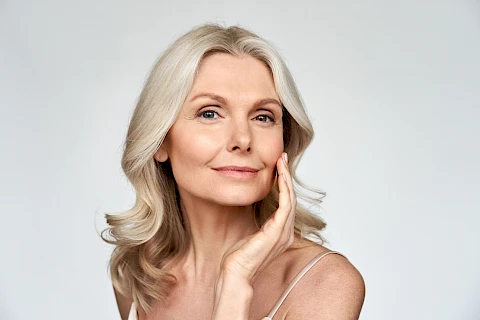
Our skin undergoes changes that require special attention and care as we age. For seniors, maintaining skin health is not simply a cosmetic concern but a crucial aspect of overall health and comfort. Use this comprehensive guide for caretakers to understand the importance of gentle cleansing, moisturizing, and diligent sun protection in preserving senior skin health. Learn to identify and address common skin issues such as dryness, bruising, and pressure sores. Ensure seniors' skin stays as healthy and comfortable as possible.
Skin Changes in Seniors
As we age, our skin naturally loses elasticity and becomes thinner and drier. These changes leave senior skin more susceptible to injuries and infections. Some of the most common skin issues for seniors include dryness, bruising, and pressure sores. As a caretaker, recognizing these issues early on and promptly addressing them can make a significant difference in comfort and health.
Importance of Gentle Cleansing
Senior skin is delicate and requires gentle care. Frequent washing or the use of harsh soaps can strip away natural oils, leaving skin dry and irritated. Choose mild, fragrance-free cleansers specifically formulated for sensitive skin. Use warm, not hot, water to avoid drying out the skin further. Remember to gently pat the skin dry instead of rubbing to prevent abrasion or irritation.
The Role of Moisturizing in Senior Skin Health
Moisturizing plays a key role in maintaining skin health for seniors. Regular application of a quality moisturizer can help to replenish lost natural oils, combat dryness, and maintain skin elasticity. Look for a moisturizer with a high oil content or one specifically designed for aging skin. Ensure to apply the moisturizer on slightly damp skin, ideally just after a bath or cleansing, to retain the most moisture.
Sun Protection for Seniors
Due to its thinner nature, seniors' skin is particularly vulnerable to sun damage, which can speed up skin aging and even lead to skin cancer. Therefore, taking steps to protect the skin from harmful UV rays is essential. Consider broad-spectrum sunscreens with an SPF of at least 30, and remind seniors to wear protective clothing, hats, and sunglasses when outdoors. Applying sunscreen even on cloudy days is crucial, as UV rays can penetrate through clouds.
Identifying and Addressing Common Skin Issues
Caretakers can play a crucial role in identifying early signs of common skin issues and taking action before they worsen. Keep an eye out for excessively dry, flaky skin, unexplained bruises, or the development of pressure sores. If you notice any of these signs, start by addressing the issues at home with appropriate skin care. However, if the problem persists or worsens, seeking professional help promptly is integral.
Senior Helpers Denver North Encourages You to Be Proactive About Skin Care
Ensuring good skin health in seniors is about more than maintaining their appearance—it's about enhancing their overall comfort and well-being. By understanding the changes that occur in senior skin, adopting a gentle skincare routine, protecting against sun damage, and being vigilant about potential skin problems, caretakers can play an essential role in promoting senior skin health.
If you're in the Wheat Ridge, Aurora, Broomfield, Westminster, and Northglenn area and need professional help caring for a loved one, the team at Senior Helpers Denver North is here to assist. We're committed to providing compassionate, skilled care that takes into account every aspect of seniors' well-being, including skin health. Contact us today, and let's discuss how we can help make seniors' lives healthier and more comfortable.